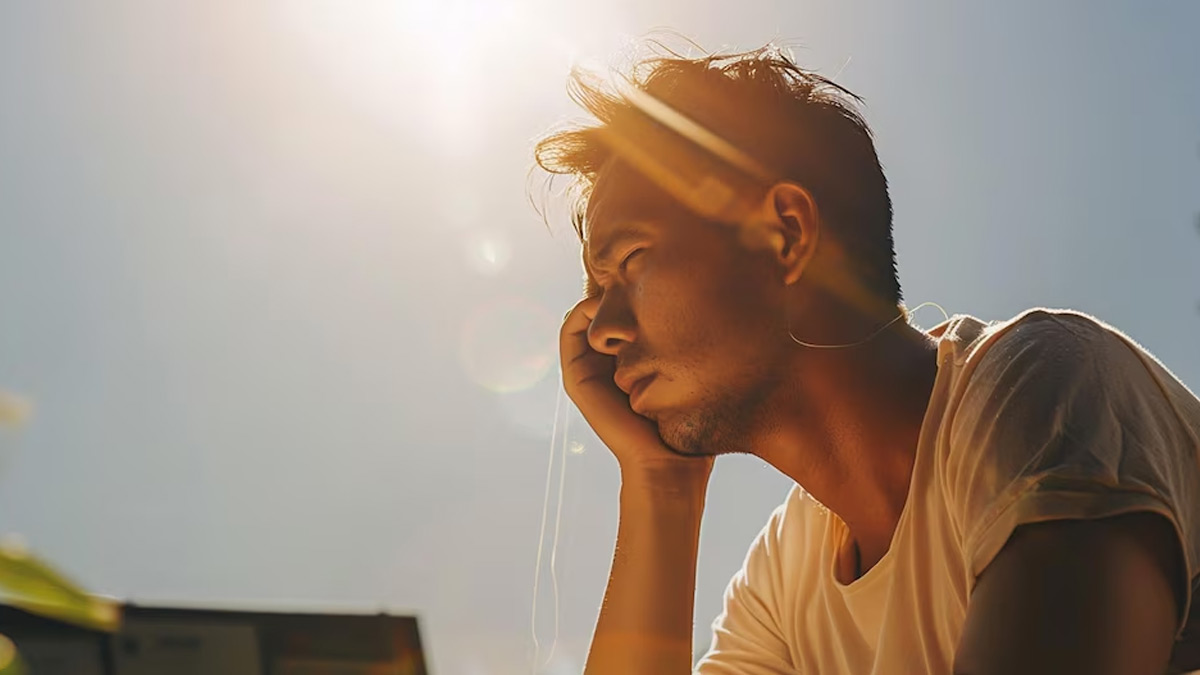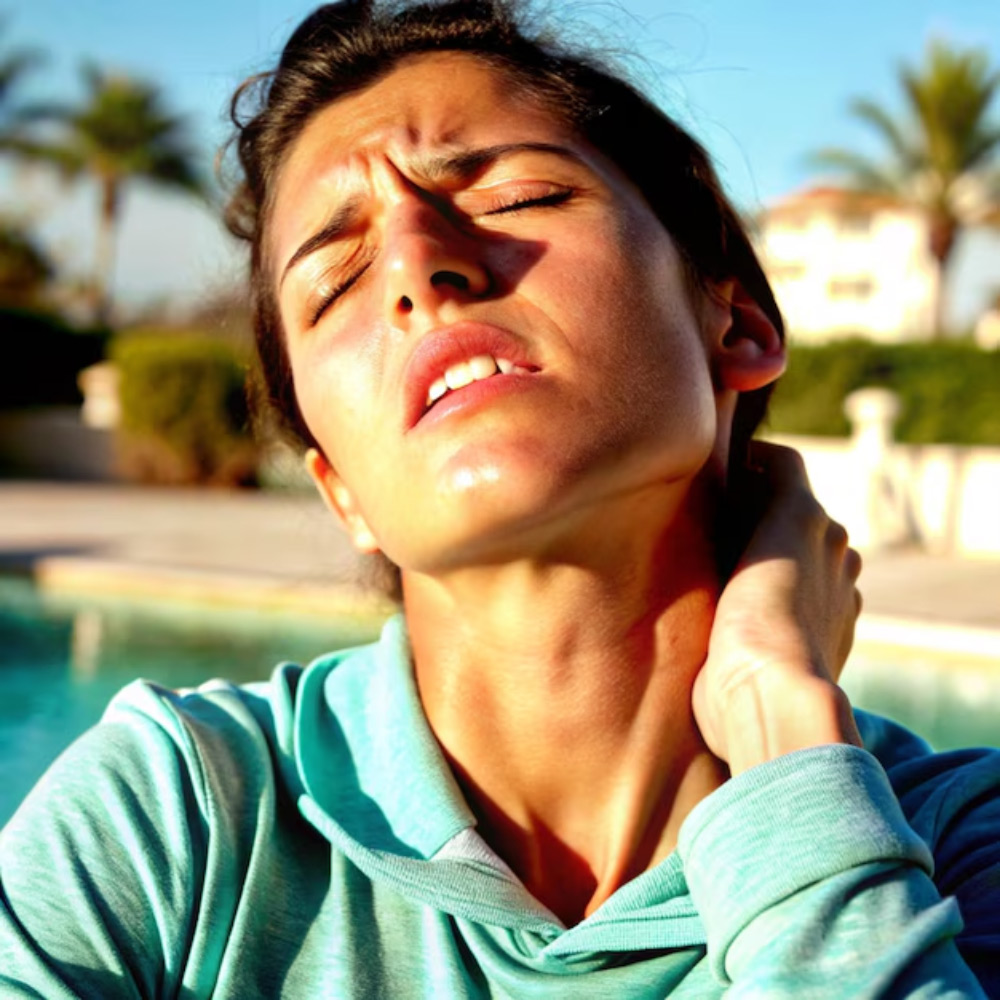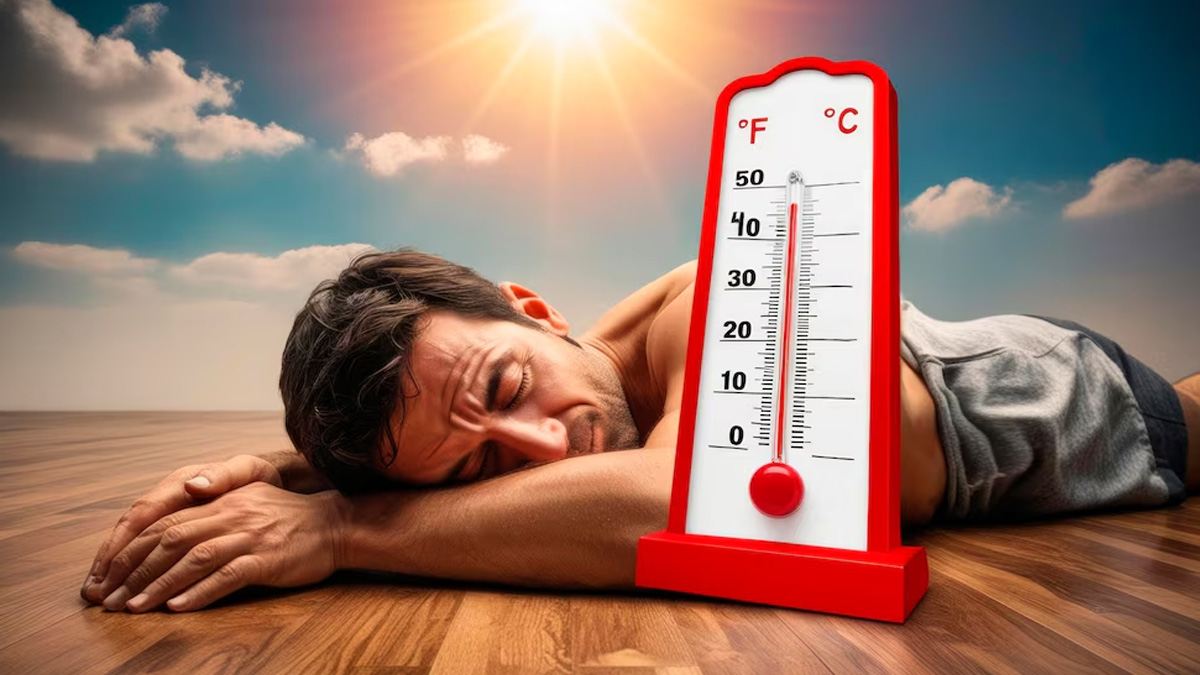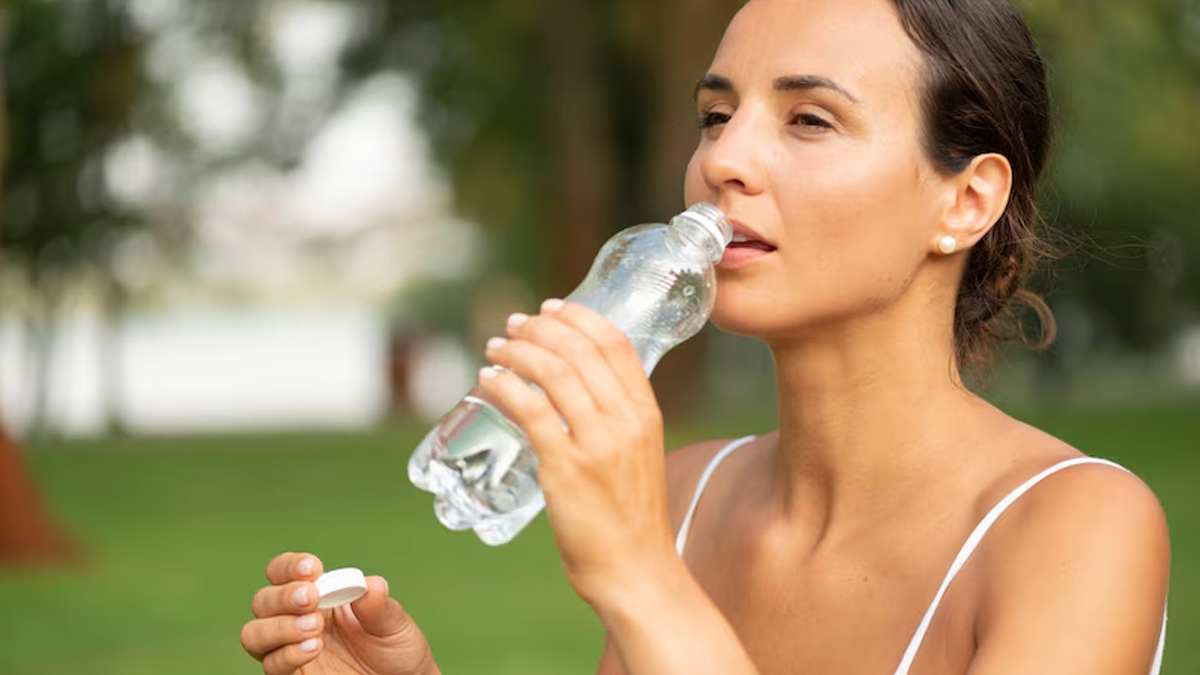
As the monsoon bids farewell, regions across India experience a unique and uncomfortable weather phenomenon known as the October heat. Particularly prominent in tropical and subtropical areas, this period is defined by high temperatures and lingering moisture from the recently concluded monsoon, making it distinctly different from the dry, scorching summer heat. This transition phase brings its own set of challenges and health risks, making it crucial to understand how October heat operates and the best measures to stay safe.
Table of Content:-
Differences Between October Heat and Summer Heat
Dr Aabid Amin, Medical Director and Consultant Internal Medicine, Ujala Cygnus Group of Hospitals, explains, "October heat is a distinctive weather phenomenon that occurs after the monsoon season, particularly in tropical and subtropical regions like India. Unlike the dry heat of summer, October heat is characterised by lingering moisture from the monsoon combined with high temperatures and little to no rainfall."

Unlike summer, where dry heat prevails, October heat is often accompanied by high humidity levels due to the residual moisture in the atmosphere. The oppressive combination of heat and humidity makes this period especially uncomfortable. In areas like North India, Maharashtra, and Gujarat, the climate becomes even more unbearable due to the lack of significant winds, which keeps the heat trapped and increases discomfort.
"Furthermore, urban areas experience a compounding effect due to the heat island phenomenon, where concrete structures and asphalt surfaces absorb and retain heat, making cities even hotter during this time," adds Dr Amin. Cities and urban environments intensify the impact of October heat, creating a sweltering atmosphere that puts a greater strain on individuals’ health.
Also read: Frequent Headaches Amid Heatwave: Doctor Explains Possible Reasons
Health Risks of October Heat

The combination of heat and humidity during October can strain the body’s natural cooling mechanisms. According to Dr Aabid Amin, "October heat can strain the body’s natural cooling mechanisms, leading to health issues such as heat exhaustion, dehydration, and respiratory problems. The high humidity can also exacerbate conditions like asthma and other respiratory ailments by making it harder for the body to regulate temperature."
Prolonged exposure to such conditions may lead to serious heat-related illnesses like heatstroke and dehydration. Dr Amin points out that vulnerable groups—such as the elderly, children, pregnant women, outdoor workers, and people with pre-existing medical conditions—are particularly at risk. These groups are less able to cope with rapid changes in temperature, making them more susceptible to complications arising from October heat.
Additionally, respiratory ailments are aggravated by the moisture and lack of air circulation, making it difficult for individuals with asthma or other respiratory conditions to breathe comfortably. "The high humidity can also exacerbate conditions like asthma and other respiratory ailments by making it harder for the body to regulate temperature," Dr Amin elaborates.
Also read: How To Treat Eye Redness And Inflammation At Home Amid Heatwave Alert
Tips to Stay Safe During October Heat
Taking precautions during the October heat can help prevent health issues and ensure safety during this transition period. Here are some key tips recommended by Dr Amin:

Stay Hydrated
"It’s important to drink plenty of water throughout the day to stay hydrated," emphasises Dr Amin. Dehydration is a major risk in high temperatures, especially with the added humidity. Drinking water regularly helps the body cool down and prevents heat-related illnesses.
Wear Appropriate Clothing
Opt for light-coloured, loose-fitting clothing to keep cool. Breathable fabrics like cotton can help the skin breathe, preventing overheating.
Avoid Peak Heat Hours
The hours between 10 AM and 4 PM are typically the hottest. Dr Amin advises limiting outdoor activities during this time to minimise heat exposure. If going outside is necessary, wear a hat and use sunscreen to protect your skin.
Cool Your Environment
Whether through fans, air conditioning, or cooling showers, it’s essential to keep your surroundings cool. Taking frequent cool showers or sponge baths can lower your body temperature.

Monitor Your Diet
Eating light meals rich in fruits and vegetables can help maintain your energy without increasing body heat. Avoid heavy, spicy foods, as well as caffeine and alcohol, which can lead to dehydration.
Check on Vulnerable Individuals
Keep a close watch on the elderly, children, and individuals with pre-existing medical conditions. "It’s also important to check on vulnerable individuals, such as the elderly and young children, as they are more sensitive to heat," Dr Amin recommends.
Recognise the Warning Signs
Dr Amin also advises paying close attention to any early warning signs of heat-related illnesses. Symptoms like dizziness, fatigue, or headaches should not be ignored. If you experience these symptoms, seek medical help immediately to prevent a heat stroke or other serious conditions.
Conclusion
October heat, while often overlooked compared to the summer heat, poses significant health risks due to its combination of high humidity and heat. By taking preventive measures like staying hydrated, avoiding peak hours of heat, and ensuring vulnerable individuals are safe, you can navigate this tricky weather phase without compromising your health.
Dr Aabid Amin's advice emphasises the importance of understanding and addressing the specific challenges that October heat presents to ensure safety and well-being during this season.
Also watch this video
How we keep this article up to date:
We work with experts and keep a close eye on the latest in health and wellness. Whenever there is a new research or helpful information, we update our articles with accurate and useful advice.
Current Version